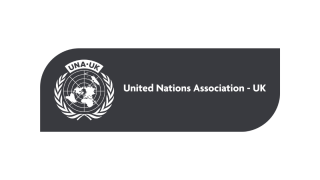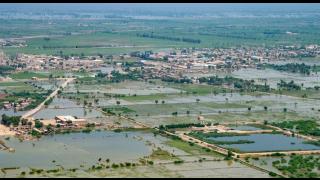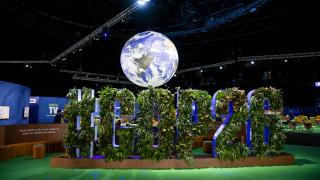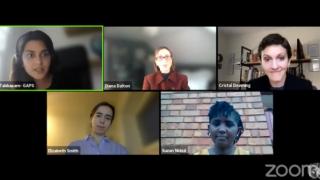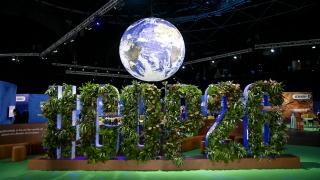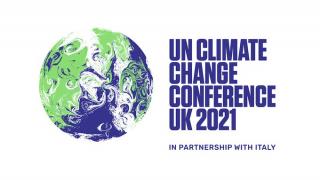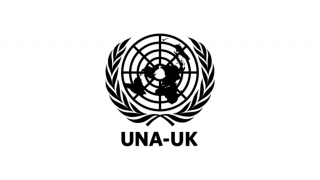
Sir Jeremy Greenstock, UNA-UK Chairman, and Natalie Samarasinghe, Executive Director, set out the Association's perspective on the post-2015 development agenda and recommendations on UK action in their introduction to Global Development Goals: Partnerships for Progress - UNA-UK's latest report, released to coincide with the opening of the 2014 UN General Assembly.
The article is included in full below.
From global goals to global action
To date, more than a million people, governments and organisations from across the world have contributed to drafting Sustainable Development Goals. We must maintain and increase this engagement as we plan how to make the Goals deliver
2014 marks the centenary of the First World War and the 75th anniversary of the renewed outbreak of conflict in 1939. The experience of two ‘wars to end all wars’ in one generation spurred governments, even as they were still fighting, to begin to lay the foundations for peace. In 1945, the United Nations was born, conceived as a means for states to solve their disputes and to tackle problems collectively.
The immediate challenges were immense. Large swathes of Europe and Asia had been reduced to ruins. Millions were homeless and starving. Living standards in what had been some of the wealthiest countries were pushed back by over a decade.
War remains the greatest wrecker of development. Conflict-affected states take up most of the places at the very bottom of the UN Development Programme’s Human Development Index. They lag, or have fallen behind, on many of the Millennium Development Goal (MDG) targets. People in conflict affected countries are more than twice as likely to be undernourished than in other developing countries and to see their children die before the age of five. Syria’s brutal conflict is said to have put the country back by 35 years in development terms.
The UN’s mission has always been about development as much as peace. Today, it faces many of the challenges it confronted in its early years – big power tensions, disease outbreaks and the largest number of refugees since 1945. The main difference, other than climate change, which is no longer ‘existential threat’ but ‘existential reality’, is our interconnectedness.
It is often said that we live in a ‘global world’, where events in any one country have the potential to affect others. According to the 2011 World Development Report, countries lose 0.7 per cent of their annual GDP for each conflict-affected neighbour. Crop failure in Thailand could trigger rice shortages in Nigeria. A flood in Bangladesh could affect the clothing industry around the world. Investing in least-developed countries, meanwhile, could contribute significantly to global economic growth.
Our global world has given us strengths as well as vulnerabilities. The most serious challenges we face cannot be solved by any one country alone. There is great power in our collective capacity to think and act, particularly through our global institutions. The achievements of the MDGs, listed throughout this volume, are an example of that. But as our contributors also argue, we can and must do better. Creating peaceful, prosperous and sustainable societies will benefit us all.
One major criticism of the MDGs was that they were conceived behind closed doors at the UN with little input from governments, experts and practitioners, let alone the people they were intended to serve. This is certainly not the case with the post-2015 development agenda.
To date, over one million people have taken part in physical and online consultations on priorities for the next set of development goals. This has been supplemented by government, business and civil society meetings on everything from the needs of small island developing states to the development concerns of indigenous peoples.
UNA-UK’s own contribution to the process included the first edition of Global Development Goals, which analysed the successes, gaps and challenges of the MDGs to produce ideas on how to improve their successors. This new publication shifts the focus from ‘what’ to ‘how’, with sections on financing, delivering results, sharing knowledge, widening participation and moving towards a development agenda that is truly shared, in terms of responsibilities and benefits.
These various strands were partially, and many would say unsatisfactorily, addressed by MDG 8 on a global partnership for development. One key element of the proposals put forward by the Open Working Group on Sustainable Development Goals (SDGs) is the significant expansion of the global partnership goal and its relative importance.
In their pieces, Amir Dossal, Michael O’Neill and Darian Stibbe set out why ‘partnerships’ – a word that means very different things to different people – will be essential to realising the ambitious vision contained in the draft SDGs, but only if they work and deliver to everyone’s advantage. Mark Moody-Stuart and Anthony Hilton make the ‘business case’ for private sector involvement, while Martin Chungong, Sharan Burrow and Mariana Rudge look at parliamentary, labour and civil society engagement.
Talaat Abdel-Malek, Sylvie Aboa-Bradwell and Cephas Lumina strike notes of caution, challenging concepts such as aid and cooperation, and mechanisms like debt relief initiatives. Gunilla Carlsson, meanwhile, puts an institutional challenge to the UN, asking whether our global system is capable of delivering on the goals.
Ideas for what we should do on tax, trade, remittances and data come from Jo Marie Griesgraber, Arancha González, Laura Thompson and Nancy McGuire Choi. Practical examples come from Brahima Sanou on ICTs, Faraj El-Awar on water partnerships and Veena Khaleque on community knowledge sharing in Bangladesh.
In our final piece, Richard Jolly looks ahead to the negotiations and to the role of Europe. Perhaps the most important shift from MDGs to SDGs is that the new agenda will be universally applicable. How will wealthy countries like the UK approach targets such as halving the proportion of those living in poverty according to national definitions? Or halving per capita food waste at the retail and consumer level? The UN Food and Agriculture Organization estimates that consumers in rich countries waste almost as much food as the entire net food production of sub-Saharan Africa.
UNA-UK believes that the UK can build on its strong development record by leading by example and encouraging others to embrace the universality of the new framework. It should also continue to push for a progressive set of SDGs, with human rights and good governance at its heart, as well as clear targets to address inequalities and specific actions for vulnerable groups, including monitoring processes that better track their progress.
Developed and developing countries alike should use the coming months to focus on the global partnership, looking at financing; the roles and responsibilities of governments, business and civil society; and the institutional developments and mechanisms needed to deliver the new framework, including how it will complement and reinforce UN climate change processes.
In all of this, states must not lose sight of the need to support and strengthen our global system itself, with the UN at its heart. Global instability makes it tempting to turn inwards and focus on problems closer to home. But our challenges are shared and domestic issues increasingly have a global dimension. Any vision for the SDGs must be underpinned by investment in our institutions.
Finally, all of us must play our part in ensuring that states focus on the practicalities of implementing the new development agenda, without losing the vision and ambition the world needs.

